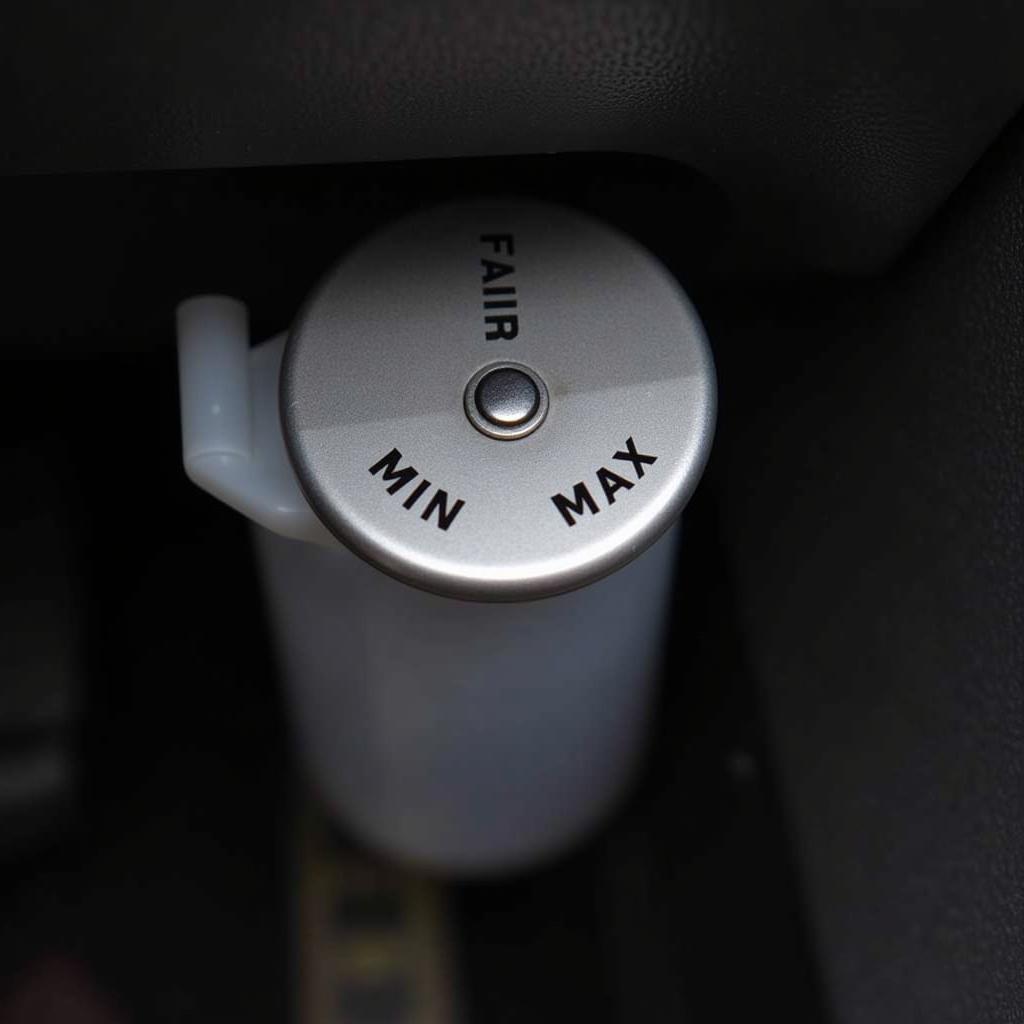Owning a car is a great convenience, but it also comes with the risk of theft. That’s where anti-theft systems come in, acting as your vehicle’s silent guardian. But what exactly is an anti-theft system and how does it work?
In simple terms, an anti-theft system is a complex network of electronic and mechanical components designed to deter vehicle theft. It acts like a shield, protecting your car from unauthorized access and preventing it from being driven away without your permission.
Understanding the Different Types of Anti-theft Systems
Anti-theft systems have come a long way since the days of basic steering wheel locks. Modern vehicles often boast a combination of features working together to provide robust protection. Let’s explore some of the most common types:
1. Immobilizers: The Heart of Modern Security
At the heart of many modern anti-theft systems lies the immobilizer. This clever device prevents the engine from starting unless the correct key is present. It works by using a transponder chip embedded in your car key that communicates with the vehicle’s Engine Control Unit (ECU). When you insert your key, the ECU verifies the unique code sent by the transponder. If the codes match, the ECU allows the engine to start.
2. Alarm Systems: Your Vehicle’s Loud Voice
Remember those blaring sirens that used to go off in the middle of the night? Those are car alarms, and they’re still a popular anti-theft feature. While they might not directly prevent theft, they act as a strong deterrent by drawing attention to any unauthorized entry attempt. Modern alarm systems are more sophisticated than ever. They use sensors to detect movement, impacts, or changes in the vehicle’s electrical system, triggering the alarm if anything seems amiss.
3. Remote Keyless Entry: Convenience and Security Combined
Remember fumbling with your car keys in the dark? Remote keyless entry systems have made that a distant memory. These systems use radio waves to lock and unlock your car doors remotely. More importantly, they contribute to your vehicle’s security by allowing you to arm and disarm your alarm system from a distance.
4. GPS Tracking Systems: Your Eyes in the Sky
Imagine being able to track your stolen vehicle in real-time. That’s precisely what GPS tracking systems offer. These systems use satellite technology to pinpoint your vehicle’s location, transmitting the information to you or a monitoring service. This makes it much easier for law enforcement to recover your car in case of theft.
5. Biometric Authentication: The Future of Vehicle Security
As technology advances, so do anti-theft systems. Biometric authentication takes security to the next level by using unique biological traits to verify your identity. Imagine your car recognizing your fingerprint or scanning your iris before allowing access. While not yet mainstream, biometric security holds immense potential for the future of anti-theft technology.
Common Problems and How to Diagnose Them
While anti-theft systems are designed to provide reliable protection, they can occasionally encounter issues. Here are a few common problems and some tips for diagnosis:
- Car Won’t Start: If your car refuses to start and you suspect an issue with the immobilizer, try using your spare key. If the spare key works, the transponder chip in your primary key might be faulty.
- Alarm Keeps Going Off: A malfunctioning alarm system can be a major headache. Check your door, hood, and trunk sensors to ensure they’re clean and functioning correctly. Extreme temperatures or a weak car battery can also trigger false alarms.
- Keyless Entry Not Working: If your remote keyless entry system isn’t responding, start by replacing the battery in your key fob. If that doesn’t solve the issue, there might be a problem with the receiver in your car.
 Car Diagnostic Tools
Car Diagnostic Tools
Troubleshooting Anti-theft System Issues
When it comes to troubleshooting anti-theft system problems, seeking professional assistance is often the wisest course of action. A qualified mechanic equipped with advanced diagnostic tools can quickly pinpoint the issue and recommend the appropriate repair.
“Modern vehicles rely heavily on intricate electronics,” says John Smith, a certified automotive electrician with over 20 years of experience. “Attempting to fix complex systems like the anti-theft system without proper knowledge and equipment can often lead to more damage.”
Frequently Asked Questions about Anti-theft Systems
Here are answers to some common questions people have about anti-theft systems:
Can I install an aftermarket anti-theft system?
Yes, many aftermarket anti-theft systems are available, offering various levels of protection. Professional installation is recommended to ensure compatibility and proper functionality.
Do I need to pay a subscription fee for GPS tracking?
Some GPS tracking systems require a monthly or annual subscription fee for data services. However, there are also systems available that operate without ongoing fees.
Can an anti-theft system drain my car battery?
A properly functioning anti-theft system should have minimal impact on your car battery. However, a faulty alarm system constantly triggering could potentially drain your battery.
Can I disable my anti-theft system?
While technically possible, disabling your anti-theft system is not recommended. It leaves your vehicle vulnerable to theft and might void certain warranties.
Can I upgrade my car’s existing anti-theft system?
In some cases, it’s possible to upgrade components of your existing system, such as adding a more advanced alarm or GPS tracker.
 Car Alarm System
Car Alarm System
Cardiagtech: Your Partner in Automotive Security
If you’re experiencing issues with your anti-theft system or looking to enhance your vehicle’s security, CARDIAGTECH is here to help. We offer a wide range of diagnostic tools and software solutions designed to troubleshoot and repair complex automotive systems. Our team of experts is dedicated to providing top-notch service and support, ensuring your vehicle stays protected. Contact us today to learn more about our services.
By understanding how anti-theft systems work and recognizing potential problems, you can help keep your car safe and secure for years to come. Remember, when it comes to vehicle security, prevention is always the best policy.
For more information on how to reset your anti-theft system, you can visit How to Reset Anti Theft System Dodge Stratus. Or if you’re looking to bypass the anti-theft system on your Ford Taurus, check out our guide on How to Bypass Anti-theft Ford Taurus. We also have articles on how to bypass the anti-theft system on a Ford Explorer and how to reset the anti-theft system on a Toyota. If you’re wondering if remote starters can interfere with a car’s anti-theft system, we have an article addressing that concern: Can Remote Starters Interfere With Another Car’s Anti-theft?.


